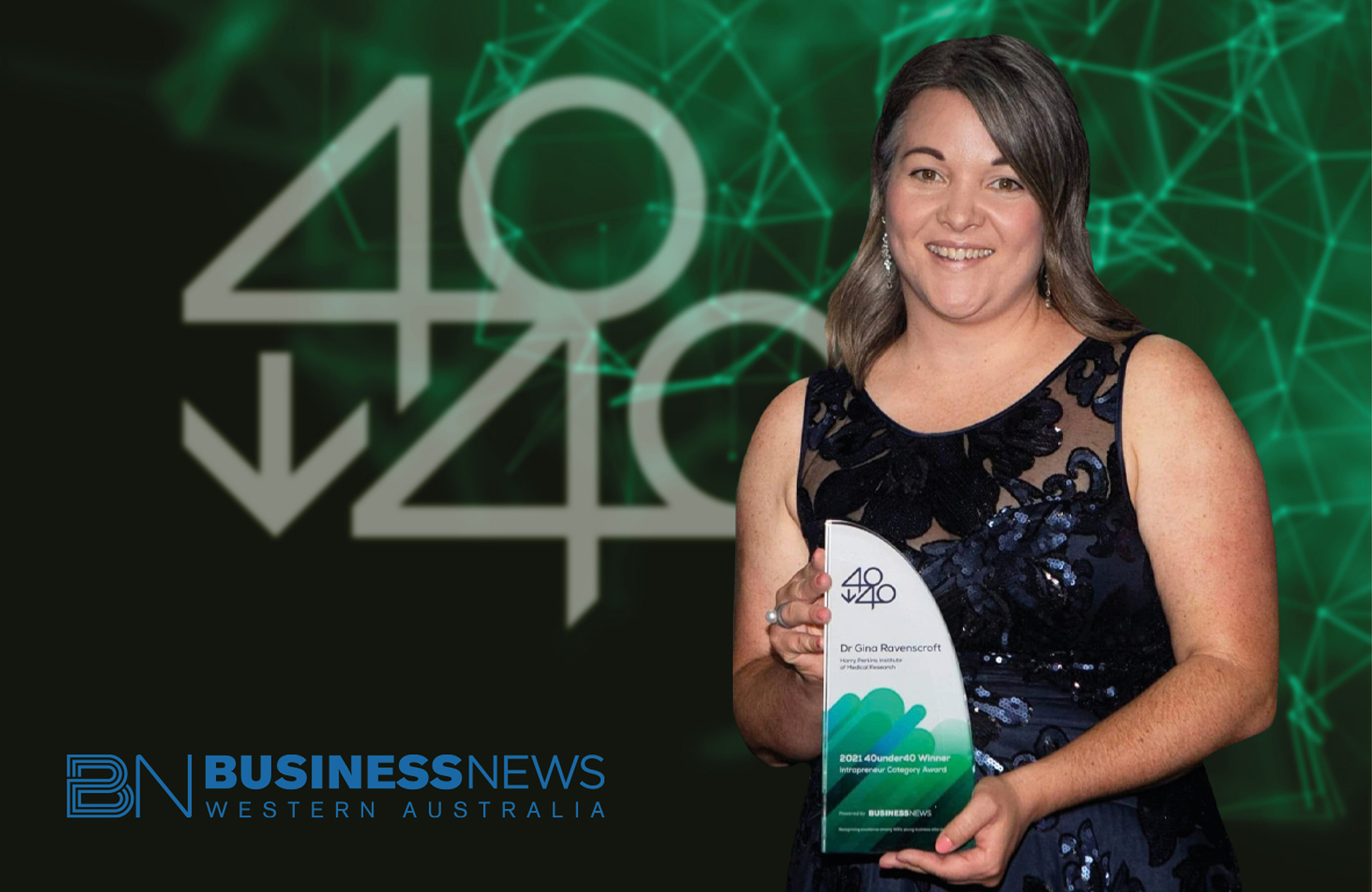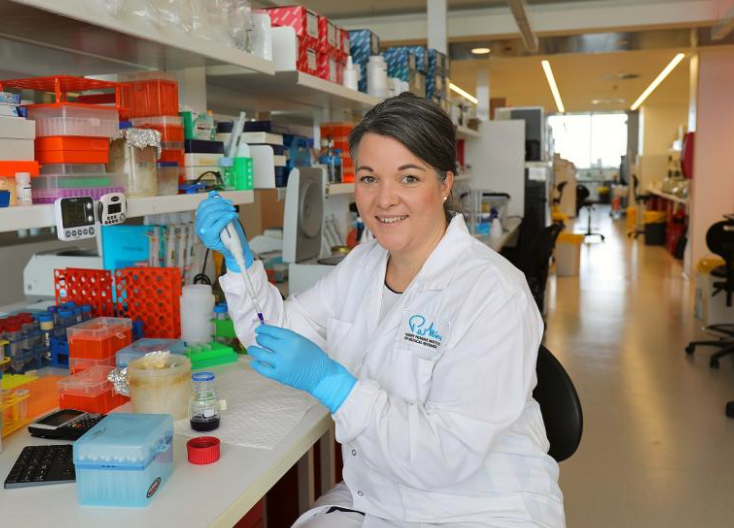
Ravenscroft targets medical grant reform

Gina Ravenscroft has made strategic decisions about where to study and work. Photo: Business News, David Henry
Gina Ravenscroft’s medical research has improved the lives of many families who have lost children to genetic diseases.
Dr Ravenscroft, who leads the Rare Disease Genetics and Functional Genomics Group at the Harry Perkins Institute of Medical Research and the University of Western Australia, has identified several genes that cause rare conditions.
She was involved in a project which found three different human genes which cause severe nemaline myopathy, a rare disease which results in muscle weakness throughout the body. Most affected babies died soon after birth.
Dr Ravenscroft’s research and findings have provided families with knowledge and choice: the awareness of what genes caused their child’s disease, and an ability to calculate the risk of recurrence and test subsequent pregnancies.
“It gives them some confidence around having children into the future, which is really important,” Dr Ravenscroft told Business News.
“A lot of the families will stop trying to get pregnant until they have a genetic diagnosis because they don’t want to go through that ordeal again of having a really ill baby.”
Dr Ravenscroft is also responsible for the discovery and characterisation of a new muscle disease, myoglobinopathy, which was highlighted as one of the top 10 neuromuscular disease discoveries of 2019.
She has taken a methodical approach to her career, making strategic decisions about where to study and work based on where she wants to take her research.
Her work is currently supported by a NHRMC Career Development Fellowship and the Patricia Verne Kailis Fellowship, established by the late Patricia Kailis and her family.
The fellowship from the Kailis family was a great relief, Dr Ravenscroft said, as dealing with the uncertainty in funding that plagued the medical research industry was a huge challenge in her career.
She said researchers had about a 10 per cent chance of receiving a grant, without which work stopped.
“I’ve really struggled with that,” she said.
“I think a few years ago I decided that if this is going to be it then I just have to go for it and stop worrying about the uncertainty and just believe that it will sort itself out.”
Dr Ravenscroft is now trying to reform the grant system, working with the Australian Academy of Science EMCR Forum, The National Association of Research Fellows, and the Australian Academy of Health and Medical Sciences to make it more equitable, especially for women and early-to-mid career researchers.
“[I am] trying to work with the funding groups and trying to make the system fairer so the best researchers at all career levels are funded and supported,” she said.
Dr Ravenscroft is also driving Harry Perkins’ pursuit of philanthropic support.
She said her next focus was to build on the work of others in her field, including Patricia Kailis and Harry Perkins Institute of Medical Research group leader Nigel Laing.
“That’s the next challenge, is to continue the legacy that Patricia and then Nigel have in WA in human disease genetics and to carry that work forward,” Dr Ravenscroft said.
Gina Ravenscroft was a 2021 40under40 First Amongst Equals finalist and the Intrapreneur category winner.
